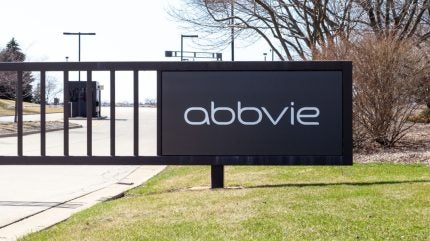
Ichnos Glenmark Innovation subsidiary IGI Therapeutics has signed an exclusive licensing agreement with AbbVie for ISB 2001, a cluster of differentiation 38 (CD38) B-cell maturation antigen (BCMA) and CD3 trispecific antibody for treating oncology and autoimmune diseases.
AbbVie will gain exclusive rights to develop, manufacture and market this IGI’s investigational asset across North America, Europe, Japan and Greater China.

Discover B2B Marketing That Performs
Combine business intelligence and editorial excellence to reach engaged professionals across 36 leading media platforms.
Subject to regulatory approval, IGI will receive $700m in upfront payment from AbbVie.
IGI will also be entitled to up to $1.225bn based on development milestones and regulatory and commercial targets, along with tiered double-digit royalties calculated based on net sales figures.
AbbVie research and development executive vice-president and chief scientific officer Roopal Thakkar stated: “Multispecifics including trispecific antibodies represent a new frontier in immuno-oncology with the potential to deliver deeper, more durable responses by engaging multiple targets simultaneously.
“This partnership with IGI reflects our unwavering commitment to advancing novel therapies for patients with multiple myeloma, a disease where significant unmet need remains despite recent progress.”

US Tariffs are shifting - will you react or anticipate?
Don’t let policy changes catch you off guard. Stay proactive with real-time data and expert analysis.
By GlobalDataISB 2001, developed using IGI’s BEAT protein platform, is a tri-specific T-cell engager designed to target BCMA and CD38 on myeloma cells and CD3 on T cells.
It features two distinct binders that target myeloma-associated antigens, for enhancing avidity even at low expression levels and aiming to improve safety compared to first-generation bispecific antibodies.
IGI president and CEO Cyril Konto stated: “ISB 2001 exemplifies the potential of our BEAT protein platform to generate effective multispecifics that may overcome resistance and improve outcomes in hard-to-treat cancers.
“Our partnership with AbbVie accelerates ISB 2001’s path to patients and sharpens our focus on advancing the next generation of BEAT-enabled assets in oncology.”
AbbVie has recently agreed to acquire Capstan Therapeutics for $2.1bn, enhancing its pipeline with a clinical-stage in vivo chimeric antigen receptor T-cell (CAR-T) candidate.




